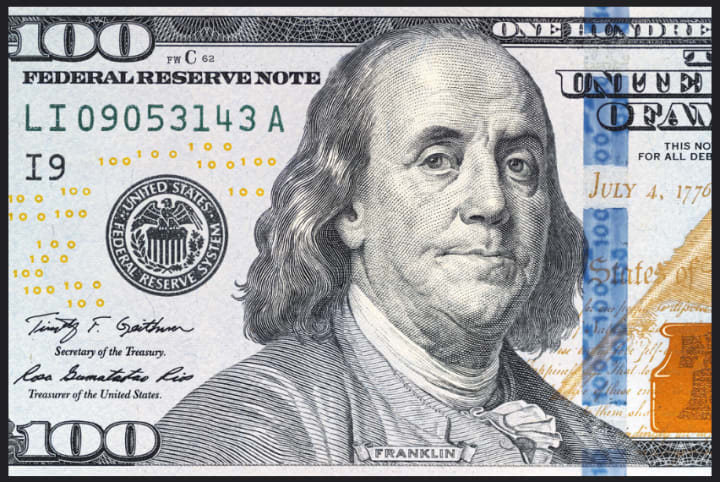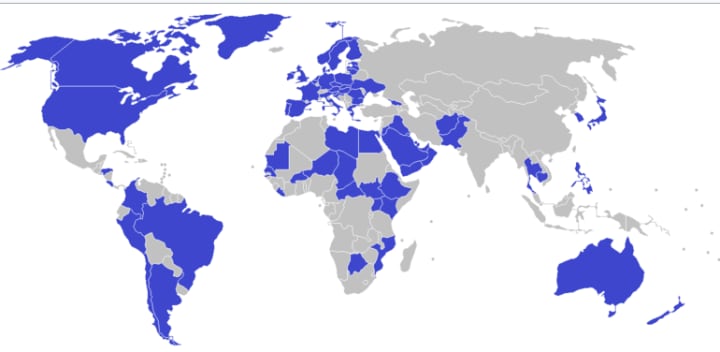Evolution of Diplomacy: From Benjamin Franklin to Modern State Department
This article primarily underscores the history of the U.S. Department of State, highlighting notable historical accomplishments and groundbreaking diplomatic initiatives. It clearly illustrates the utmost significance of the State Department in global politics. The United States Department of State, established in 1789, holds a distinguished history in shaping American foreign policy and international relations. Notably, it played a pivotal role during the American Revolutionary War through the Committee of Secret Correspondence, securing vital support from France. Over the years, the State Department has been instrumental in negotiating treaties, such as the Treaty of Paris in 1783, which officially recognized American independence from the UK. It has also been a driving force in spreading democratic governance worldwide, promoting English language learning, shaping the global economic system, and contributing to the formation of the United Nations. It has been involved in landmark events such as the Louisiana Purchase. In 1803, the United States acquired the rights to the western half of the Mississippi River basin through a purchase from France.

The United States Department of State, also known as the State Department, is the oldest executive department in the United States government. Established in 1789, it is responsible for the country's foreign policy and international relations. Over the years, the State Department has played a crucial role in shaping the course of history and promoting American values around the world.
The Committee of Secret Correspondence:
During the American Revolutionary War in 1775, the Committee of Secret Correspondence was established, led by Benjamin Franklin. Its mission was to secure vital support from France, a significant moment in American history. Recognizing the need for foreign backing against the British Empire, this committee engaged in secret negotiations.
Benjamin Franklin's diplomatic skills played a crucial role, given his prior connections in France. Successful clandestine efforts led to formal alliances with France in 1778. France's entry into the war with troops, naval support, and financial aid proved pivotal, altering the war's balance of power.
These diplomatic achievements showcased the importance of foreign alliances in achieving American independence. The Committee's work shaped the course of history, contributing significantly to the American victory over British rule.

The Treaty of Alliance with France, signed on Feb 6, 1778, created a military pact between the United States and France against Great Britain. France sought revenge for its Seven Years' War loss and aimed to weaken Britain strategically. The Declaration of Independence, adopted on July 4, 1776, severed the 13 colonies' political ties with Britain, summarizing their reasons for independence.
The UK officially recognized American independence via the Treaty of Paris in 1783. David Hartley, a British Member of Parliament representing King George III, signed it alongside American delegates John Adams, Benjamin Franklin, and John Jay on Sep 3, 1783.
Please CLICK HERE for getting more fascinating Historical Events.
Involvement in Foreign Policy:
On July 21, 1789, the House and Senate passed a bill to create the Department of Foreign Affairs, which President Washington signed into law on July 27, marking it as the inaugural federal agency established under the new Constitution.
Throughout its history, the State Department has been at the forefront of American foreign policy. From negotiating treaties and maintaining diplomatic relations to resolving conflicts and promoting democracy, the department has been instrumental in shaping the country's interactions with other nations.
Louisiana Purchase: It has been involved in landmark events such as the Louisiana Purchase. In 1803, the United States acquired the rights to the western half of the Mississippi River basin through a purchase from France.
The Establishment of the Monroe Doctrine: In his 1823 annual message to Congress, President James Monroe introduced the Monroe Doctrine, cautioning European nations against involvement in Western Hemisphere (Americas) affairs.

Besides this, the negotiation of peace treaties after both World Wars, The State Department's diplomats work tirelessly to represent the interests of the United States and uphold its values on the global stage.
Role of Establishing Democracy around the World:
The State Department has been instrumental in global democracy promotion. It works closely with international organizations such as the United Nations and the Organization of American States to foster democratic governance and human rights. The State Department's efforts help countries transition from authoritarian regimes to democratic systems, promoting stability and prosperity.
Advocating for democracy not only upholds core American principles like religious freedom and labor rights but also contributes to a more secure, steady, and prosperous global environment where the United States can pursue its national interests.
The Five Nations Passport Group:
The Five Nations Passport Group, consisting of the United States, the United Kingdom, Canada, Australia, and New Zealand, has worked closely to establish secure passport standards. This collaboration has not only enhanced security but also streamlined international travel for citizens of these nations.
Please CLICK HERE for getting more fascinating Historical Events.
Contribution in spreading English Language:
In addition to its political and diplomatic activities, the State Department has played a significant role in making English a global language. English is now widely used for international communication. The department supports English programs, including the Fulbright Program, helping students and professionals worldwide learn English. This not only improves understanding but also strengthens economic and cultural connections between countries.
The Department of State prioritizes spreading American English worldwide to enhance mutual understanding between the U.S. and other nations.
Role in Shaping the World Economic System:
The State Department has played a vital role in shaping the global economic system such as setting up international economic institutions like the International Monetary Fund (IMF) and the World Bank. Through the promotion of free trade, open markets, and economic collaboration, the department has implemented worldwide economic growth and stability. The economic diplomacy of the State Department aims to establish a level playing field for American businesses and to ensure that the United States will remain a leading role in the global economy.
Involvement in Establishing the UN:
The US led the formation of the UN after World War II, with Washington contributing the most to its budget. On New Year's Day in 1942, President Roosevelt, together with Prime Minister Churchill, Maxim Litvinov from the USSR, and T. V. Soong from China, endorsed the United Nations Declaration, sharing a common belief in the potential of an international organization to avert future conflicts.
State Department diplomats significantly contributed to crafting the UN Charter and shaping its core principles. Remarkably, the UN has since facilitated over 70 years of international cooperation, and the State Department continues to play an active role in its mission for a more peaceful world.
Shifting the UN over the Atlantic Ocean:
The United Nations was founded in 1945 as an international organization aimed at promoting peace, security, cooperation, and diplomacy among nations. Its creation followed the end of World War II and the desire to prevent future global conflicts.
Please CLICK HERE for getting more fascinating Historical Events.
The UN's original headquarters were established in London, with temporary offices in other European cities, including Geneva and Paris. These locations were chosen due to their proximity to the wartime allies and the immediate post-war context.
In 1946, the decision was made to relocate the UN's main headquarters to the United States, specifically to New York City that was fulfilled on October 14, 1952. The choice of New York was influenced by several factors, including the United States' significant role in the formation of the UN, its status as a major world power, and its strong commitment to international diplomacy and cooperation.
US Military Presence around the World:
The State Department helps American citizens abroad and works with the military to keep them safe. They have embassies and consulates and a special Diplomatic Security Service for protection. They also cooperate with other countries on military matters through the Bureau of Political-Military Affairs. This teamwork shows how the U.S. does foreign policy in many ways.

Strategic framework for Space Diplomacy:
Although the United States has closed hundreds of bases in Iraq and Afghanistan in recent times, it still upholds a presence with nearly 800 military bases in over 70 countries and territories around the world.
The U.S. State Department's strategic framework for space diplomacy is forward-thinking and multi-faceted. It focuses on maintaining American leadership in space exploration while promoting peaceful cooperation with other nations. Aligning space activities with security priorities, establishing international rules, and ensuring long-term sustainability are top concerns. The department supports space commercialization, human exploration missions, and international coalitions to advance common goals. Ultimately, it aims to share space technology benefits globally and adapt to evolving challenges and technologies in the space domain.
Conclusion:
The United States Department of State has a continuing influence and remains a vital institution in American governance. It has played a pivotal role in promoting American values and interests around the world. Through diplomacy, democracy promotion, economic cooperation, and military presence, the State Department continues to contribute to global stability and prosperity. As the world changes, the department adapts to new challenges and maintains its commitment to advancing American interests while upholding democratic principles.
Please CLICK HERE for getting more fascinating Historical Events.
About the Creator
Mohammed Shahidullah-Bin-Anwar
Mohammed Shahidullah, a Blogger, writes on Historical News. After completing Master's in Bengali from Dhaka University, I accumulated over 15 years of experience in various private companies. Plz visit TIME PRINTER, you will not be upset.
Enjoyed the story? Support the Creator.
Subscribe for free to receive all their stories in your feed. You could also pledge your support or give them a one-off tip, letting them know you appreciate their work.






Comments
There are no comments for this story
Be the first to respond and start the conversation.